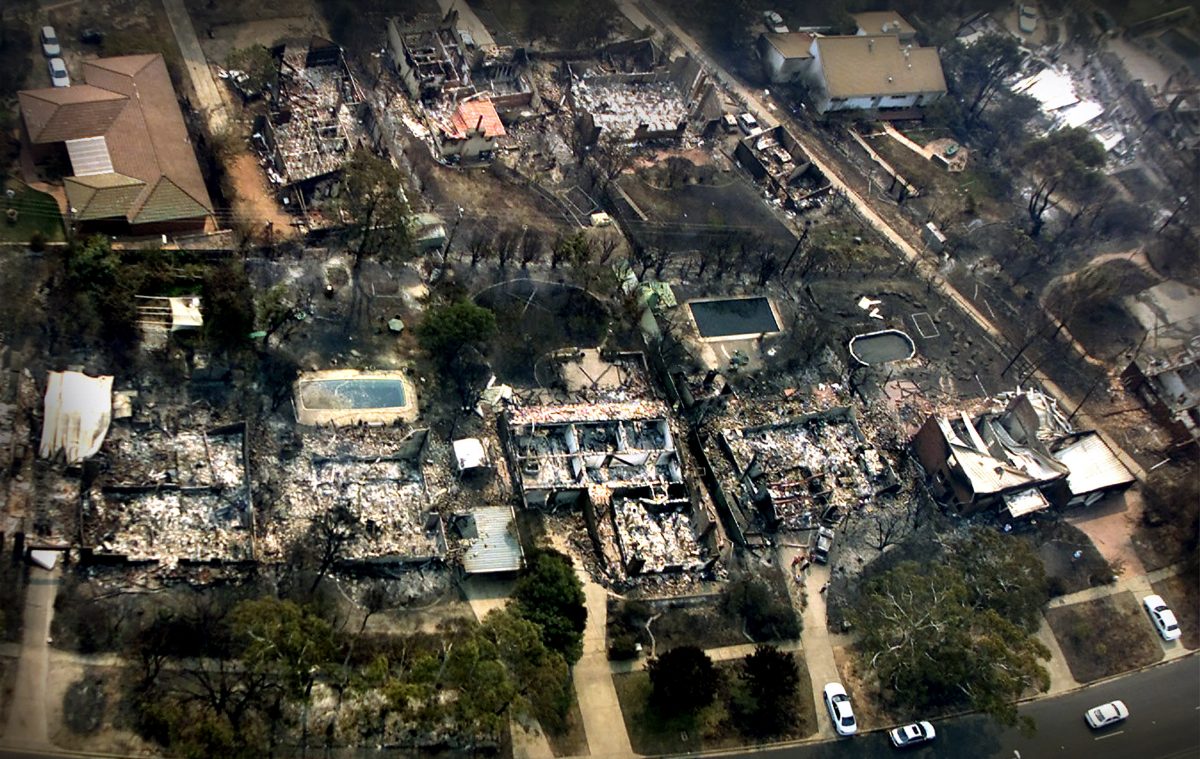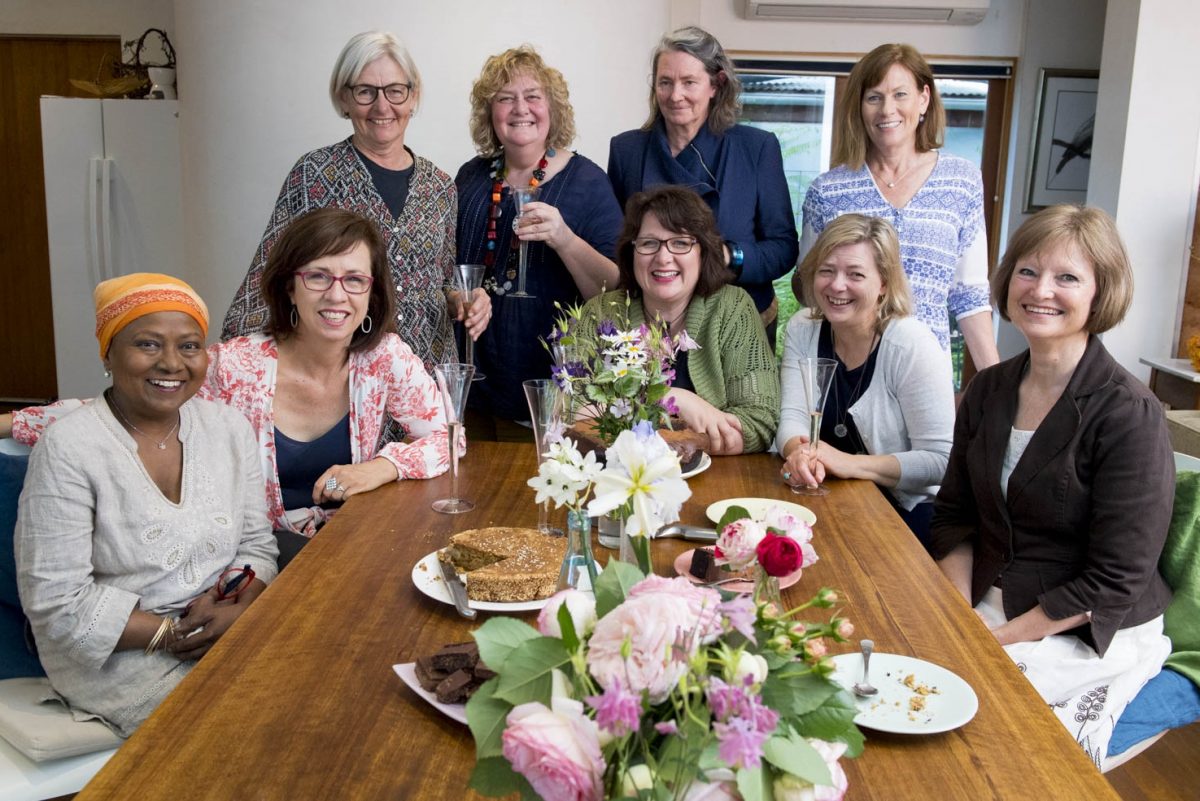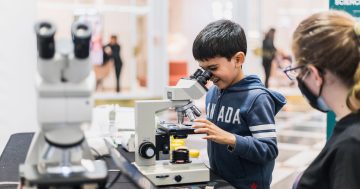
View of Eucumbene Drive in Duffy on 19 January 2003, showing Dr Downing’s destroyed home on the far right. Photo: Supplied, Dr Karen Downing, via Pat Scala/Fairfax Syndication.
“I think one of the upsides of the downside of being involved in a natural disaster is that you’re not the only one affected.
“If a bushfire comes through your suburb, really, you have an instant community. We do all go through these things together and in 2003, the whole of Canberra actually went through it.”
Dr Karen Downing lost her Eucumbene Drive home when a bushfire raged through the commercial pine plantation at the edge of Duffy.
She and her 10-year-old son were the only ones home when power went out. They scrambled to find torches and pack bags as the emergency siren sounded on the radio, before realising they couldn’t open the motorised garage door during a blackout.
“Before I could think that problem through I was yelled at by police through a megaphone from their slow-moving vehicle. ‘Get out now!’ … they told me to jump in,” Dr Downing recalled in the 2017 book Tears Laughter Champagne, a publication she put together with eight other women – the ‘Singed Sisters’ – who came together after losing their homes on 18 January.
Now, 20 years since the disaster, Dr Downing doesn’t wish to recount those moments.
“You just get to the point where you don’t want to have to keep reliving it,” she said.
“Everybody wants to know about the day, but a much bigger part of the story is what happens after the day.”
While many firefighting lessons were learned from 2003, Dr Downing is concerned the lessons around what needs to be in place before another disaster strikes haven’t been heeded.
“The support needs to be in place in communities before disaster happens, so that people have the best sort of recovery afterwards,” she said.
“Now [the Singed Sisters] were blessed because we had each other, we found each other mainly because all of our kids went to the same school and our school was incredibly supportive, so we already had community in place.
“So when everybody else sort of moved on, we had a core group that helped each other through, and we wouldn’t have been able to do that without each other.”

The ‘Singed Sisters’ still regularly meet after bonding over their shared experience in the 2003 fires. Photo: Supplied, by Grace Costa.
Once their book was published, Dr Downing said she was saddened by the number of people who told her they hadn’t been able to find their own community to help them recover.
While following the fires the Recovery Centre was in place for two years, Dr Downing said that wasn’t long enough.
“I think a lot of experiences of natural disasters, not just the Canberra fires, have shown that two years would have to be the minimum [length of time], because at the two-year point most people weren’t back in their homes,” she said.
“It’s actually a lot like giving birth, there’s a lot of emphasis on the actual giving birth and that is actually the smallest part of it.
“The support networks, the guidance, is not so much in place for the long run.”
Watching other natural disasters recently, such as the Black Summer bushfires and flooding, Dr Downing said her “heart always goes out to them” because she knows the “long road” they’re facing.
While social media has developed over the past 20 years to enable people to connect over common experiences, she wants to see more done at government and community levels to make sure supports are ready to be rolled out for extended periods of time.
She encouraged people to contact politicians and decision-makers to make sure the policies, processes, structures and funding were put in place to get people through natural disasters “in the best way possible”.
“It’s starting to look like we need something like a permanent department for recovery – not always in the same place, but people who are trained, have the experience, so that when something happens they can just roll it out,” Dr Downing suggested.
“There’s so much support that people could be given in those circumstances, yet too often it feels like it’s the first time anyone’s had to do it.”
And with natural disasters becoming even more common in Australia, Dr Downing said it was also important for people to foster their own communities before they needed them.
“Value your family, your friends, make sure that you surround yourself with the people who matter, because they matter even more when you need support,” she advised.













